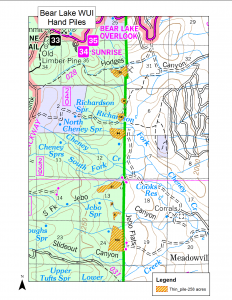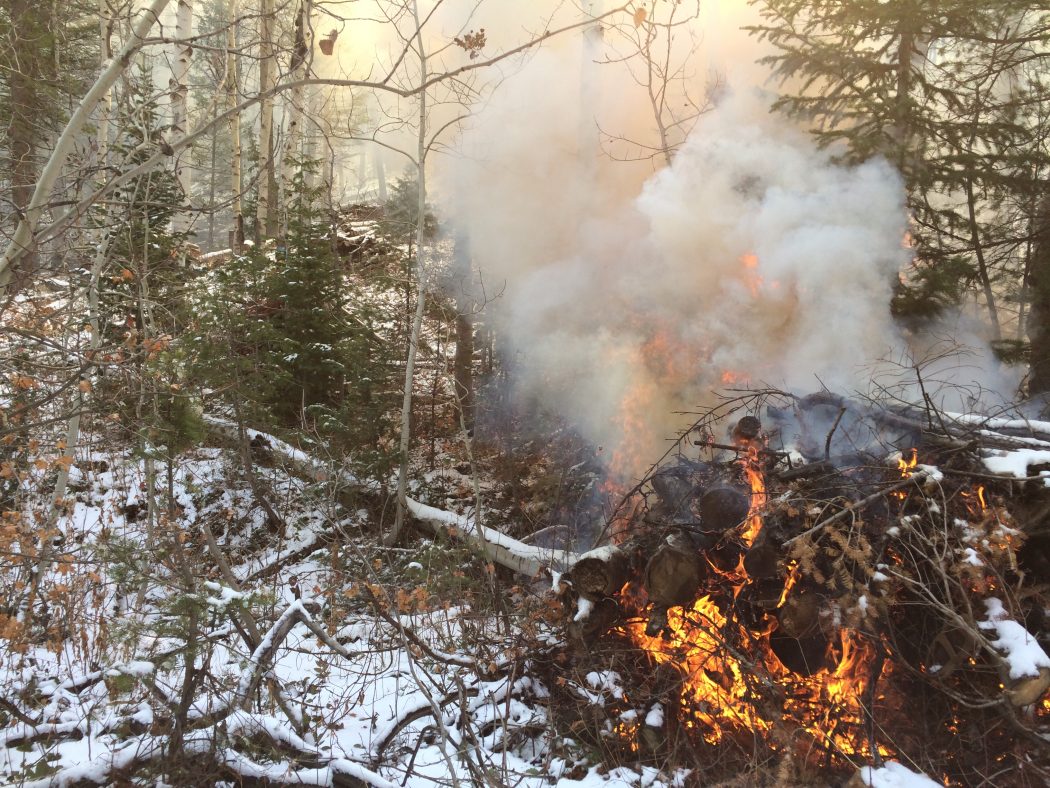Prescribed fires continue in northern Utah
Fire consumed 102 acres worth of National Forest land near Bear Lake, Utah this week as the Forest Service ignited piles to prevent future disasters.
The piles are made up of conifer trees which were cut down as a thinning measure in the spring. Igniting them prevents destructive crown fires from engulfing the neighboring communities, said Milena Rockwood, the fuels technician for the Ogden and Logan Ranger Districts of the Uinta-Wasatch-Cache National Forest.
The area was identified as “at risk” from wildfire by an assessment completed by the Utah Division of Forestry, Fire & State Lands.
“The primary goal of pile burning is to remove hazardous wildland fuel accumulations,” Rockwood said. “It is also classified as crucial winter and summer habitat for mule deer, and possible sage grouse habitat.”
Rockwood said removing a portion of the conifer trees out of aspen stands reduces the risk of large, destructive fires.
 National Forest Service
National Forest Service Typically, she said, full-scale prescribed fires can cover a larger area and prevent large crown fires by burning the understory.
“Burning piles is certainly easier because you can burn when there is snow,” Rockwood said.
While fires continue to burn across the West, purposely igniting controlled blazes can not only prevent large fires and benefit the wildlife, but also improves the forest’s health, professor of wildland resources at Utah State University Larissa Yocom said.
“If you put a fire in, it gives aspen a competitive advantage,” Yocom said. “This provides wildlife benefits as well as biodiversity benefits.”
Rockwood said while there will be visible smoke, the scale of the fires is small enough it will not affect air quality on a noticeable scale.
“Smoke and air quality are the main reasons there are not more prescribed fires,” Yocom said. “Unless something goes terribly wrong, the valley will not be filled with smoke like it has been.”
The project is located along the Forest Service boundary directly west of the communities of Garden City, Bridgerland, Sweetwater and Meadowville, and is expected to conclude Monday.
—carter.moore@aggiemail.usu.edu
@carterthegrreat

